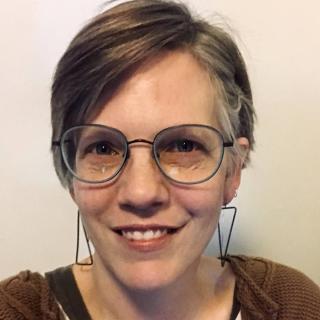
Seattle authors and therapists Jaya Ramesh and Priya Saaral have written a thoughtful and engaging book about the joys and challenges of parenting neurodivergent children of color.
Their new book, “Parenting at the Intersections: Raising Neurodivergent Children of Color” goes much deeper than your typical parenting book. While it is focused on the complexities of caring for neurodivergent children of color, all parents and caregivers should give this book a read, because as the authors say, “understanding the lives of others unlike us can grow our capacity for empathy and help us relate in more loving and generous ways.” We couldn’t agree more.
“Parenting at the Intersections” takes readers on a personal journey to explore their own parenting styles through storytelling and reflection. Rather than offering quick fixes or solutions, the ideas in this book give readers the space and time to understand the complex systems of oppression including settler colonialism, White supremacy, ableism and capitalism, and how they impact parenting and our expectations of our children. It highlights the importance of community and learning to let go of the “normal” standards for children and development that society has so deeply engrained in us all.
In our society, parents are often told they are not enough and are sold a bunch of fixes for their “problems,” ultimately eroding their confidence in themselves and their kids. We wanted this book to be an antidote to that type of intervention.
I had the opportunity to ask Jaya and Priya some questions about their book and the writing process. They answers the questions the way they wrote the book: together. Here are their thoughtful and engaging responses.
In what ways do you think this book will help parents, caregivers, even teachers of neurodivergent children of color?
We think this book will be a great source of comfort for parents and caregivers raising neurodivergent children of color, because they will hear from parents like themselves. To be seen, validated and understood is a basic human desire and often parents of multiple marginalized* children do not experience that, whether in schools, doctors’ offices, the grocery store or sometimes even with their own extended families.
We hope this book will provide parents a felt sense of being understood and celebrated and, as a result, less alone. For teachers, medical professionals and other figures that might interact with neurodivergent children of color, this book offers access and much needed information and context about the experiences of parents (and by extension the children). We think that understanding the lives of others unlike us can grow our capacity for empathy and help us relate in more loving and generous ways.
* Multiple marginalized refers to children who, in addition to being disabled, also belong to another marginalized group. This includes those who belong to marginalized genders, races, ethnicities, sexualities or economic backgrounds.
This book does not offer solutions or quick fixes. Instead, it highlights the complex realities those caring for neurodivergent children of color face. Why did you decide to structure the book like this?
It was important for us to not position ourselves as experts. An “expert” stance presumes a type of knowing that ultimately creates distance between us and the reader. In our professional lives as therapists, we embody a stance of curiosity and hold space for people to discover themselves and tap into their intuition. We wanted to bring this into our relationship with the parents we interviewed for the book and our readers.
In our society, parents are often told they are not enough and are sold a bunch of fixes for their “problems,” ultimately eroding their confidence in themselves and their kids. We wanted this book to be an antidote to that type of intervention.
We intentionally structured this book this way to support parents in re-discovering their wisdom and intuition through the use of storytelling that offers multiple perspectives, reflection questions and somatic practices.
What are the most important takeaways from the book?
We want parents to know that:
- Parenting amidst and against systems of oppression is a Herculean task, especially when raising multiply-marginalized children.
- You and your children matter and deserve goodness.
- You know how to love your child well, even if it can be extremely confusing and difficult at times.
- It is okay to make mistakes along the way — you are human!
- You are not alone in raising your child/ren, even if it may often feel that way. There is a community out there who sees and understands your experience. You deserve that support.
- Having an introspective practice to guide us in connecting to our intuition within can be helpful. We offer one such framework for a practice that we call a “Parenting Love Ethic,” inspired by bell hooks’ “Love Ethic.” It calls us to treat ourselves with gentle care so we can extend the same to our children. We need to take responsibility for our own story, needs and unhealed childhood wounds so we can be more present and attuned for our children; unlearn oppressive messages that do not serve us; and show up with respect for our children by listening to them and seeing them as whole and competent.
It’s important to remember that “normal” development standards are, in fact, not really “normal” for everyone. How would you encourage parents to hold on to that mindset?
First, we want to normalize the tendency for all of us to refer to the standards that are currently accepted in our society as the “norm,” especially since it is everywhere and inescapable. Refusing these standards means going against the grain; it means being able to see through the fog and recognize that these standards are constructed through a prism of scientific racism in service of capitalism, whose sole goal is to produce the ideal citizen that does what they are told when they are told.
To refuse, while freeing, is also incredibly hard because we are all steeped in this. So if we forget and slip towards conventional thinking, it’s ok. The first thing is to not beat yourself up.
By paying attention to feelings like grief, sadness, irritation or the longing for something else, we can practice awareness that we have yielded to the status quo approach to child development. With that awareness we can reengage and reconnect with our deep knowing that these standards are not the truth. So rather than trying to “hold on to the mindset,” we think it might be more generative and supportive to notice the inevitable ways we will slip back into the deeply ingrained conditioning and listen to the feelings and somatic sensations that arise as a way to reconnect back with the values we hold.
What was the most challenging part of writing this book?
Writing a book is a challenging endeavor. As first-time authors we had a steep learning curve from the process of proposal to publication.
As busy professionals and full time parents, a big challenge was finding ways to attend to the book and the care it deserved, without sacrificing the attention and care we wanted for all of our relationships. Because for us, the book was not about the physical book but the relationships we built with the 30 families and wanting to make sure that we told their stories with care.
And of course, no part of us wanted to sacrifice our time and attention to our children, partners, friendships or clients. Additionally, as two neurodivergent people ourselves, we both had unique thinking, writing styles and paces which resulted in different needs around the writing process that, at times, were at odds. Making intentional effort to listen to one another was deeply healing and necessary to re-center our friendship and to overcome our roadblocks with greater strength.
What was the most rewarding part of writing this book?
We really found talking to parents across the country and hearing their varied experiences to be incredibly rewarding. Each time we were invited into a family’s world, we found ourselves learning more about the rich spectrum of experiences that parenting at the intersections holds.
Another rewarding part has been the relationship between us. We started this project as friends and over the course of two intense years our relationship has deepened. We have shared food and chai, hurts and longings, stepped on each other’s toes and repaired, and navigated personally hard things together.
Any final thoughts for people considering picking up your book?
We are excited for people to read this book and hope they resonate with the parents who have generously shared their stories, and find out more about themselves.











